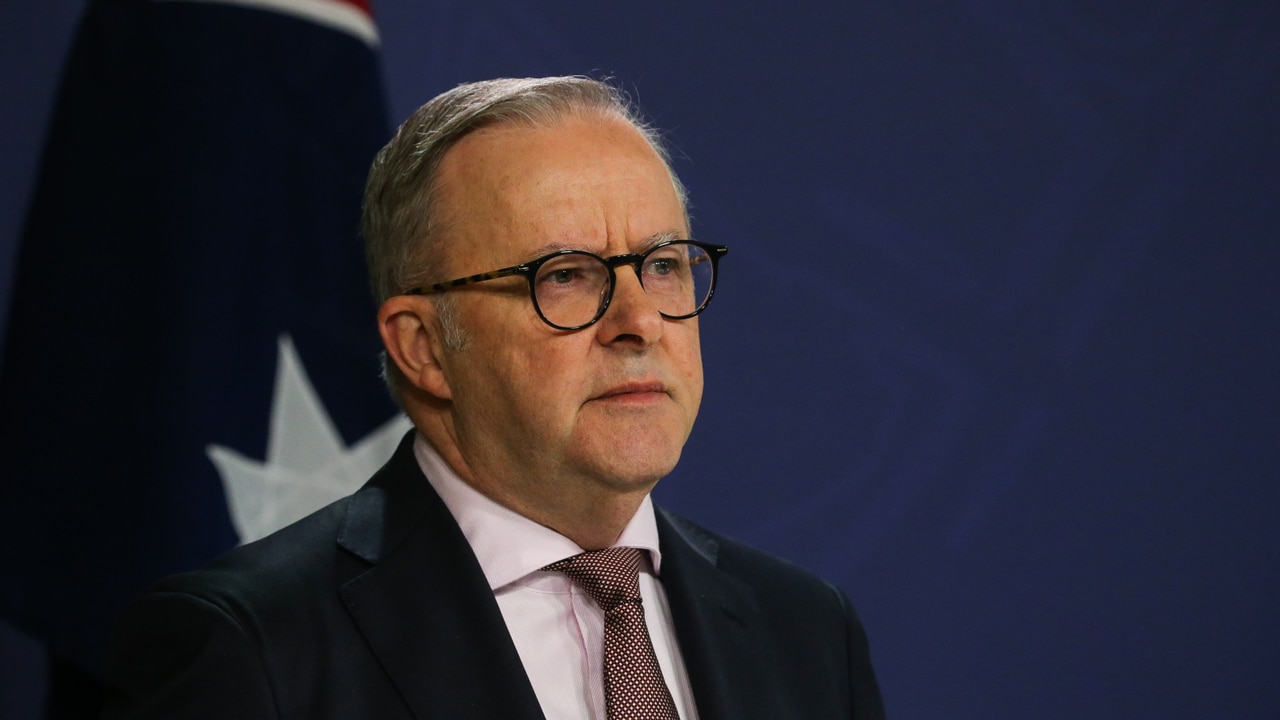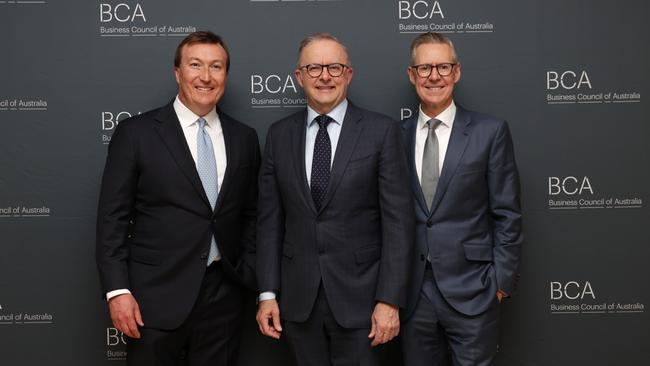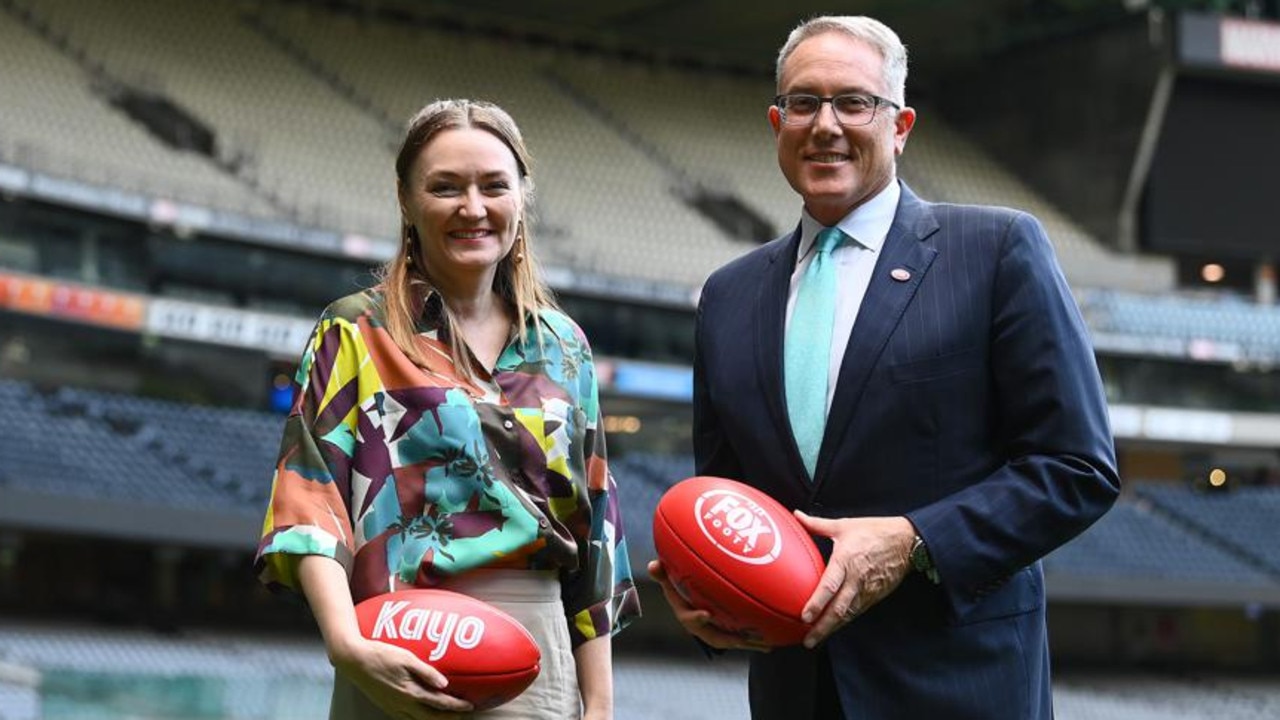KPMG Australia says big business and Canberra need same vision as CEOs confident of economic improvement
KPMG Australia says division between big business and the political class in Canberra risks further weakening in productivity and could force more companies to invest where they feel wanted.

KPMG Australia chief executive Andrew Yates has warned the current misalignment between big business and the federal Labor government is a risk to Australia’s economic future and would further dampen poor productivity.
As Prime Minister Anthony Albanese and his government face attacks by business groups over current IR laws, Mr Yates told The Australian concerns held by businesses were real and more needed to be done to support both businesses and their workers.
“We have some misalignment between the political class and big business. The intent of everyone involved is to create a better Australia. In my view, having some alignment with how we do that is in everyone’s best interests,” he said.
“Big business creates great opportunities, job opportunities and great tax receipts, but it has done some things that in the eyes of society haven’t been good.”
Mr Yates said big business had created healthy prospects for Australia and also provided strong job opportunities and tax receipts, but had also done things that, in the eyes of society, hadn’t been good.
“We need to grow transparently and with integrity, but it’s important that we get more alignment between the merits of big business and the political settings to support that,” he said.

Business leaders have warned Australia is at risk of taking “noticeable” steps backwards, with chief executives voicing fears Australia’s national prosperity is at risk due to Labor’s industrial relations policies and failure to prepare for an ageing population.
Business Council of Australia chief executive Bran Black took aim at the government on Tuesday at the peak body’s annual dinner — attended by Mr Albanese — saying big businesses were no longer confident about growing the nation’s wellbeing.
The showdown between chief executives and Mr Albanese came as the government refused to address private sector concerns about new IR laws, regulatory burdens and reform paralysis that have become a lightning rod for big and small business.
It followed a frosty reception from miners last week which accused Mr Albanese of starting a new class war by deliberately bringing conflict to every workplace through “reckless” industrial relations laws and threatening the economy through arbitrary environmental decisions that risk the viability of nation-building projects.
Mr Yates said that the lack of alignment between business and government would see the reduction in productivity continue, which would make Australia a less competitive and attractive place to do business or invest.
“Every business has choices about where it invests and we all hope that the investment is made in Australia, because it’s better for all of us. As a business has choices, it has to think about deploying its capital where that capital is best received,” he said.
“It’s just important that both sides inevitably in a debate like we’re having, there’s merit on both sides, and it’s important that you can see the other side and try and realign ourselves. I’m sure the intent of everyone involved is to create a better, stronger Australia.”
KPMG on Wednesday released findings from its 2024 CEO Survey of 1325 chief executives in 11 economics, including in Australia.
Around 86 per cent of Australian CEOs are confident in the growth prospects for their companies over the next three years, despite growing concerns over an economic slowdown.
Mr Yates said the past year had been challenging for businesses, with many — including KPMG — having to be disciplined about costs in the wake of a slowing economy, but there was a sense that the tide would soon turn as inflation returned to levels that the Reserve Bank could cut interest rates.
“The RBA is doing a good job at navigating this narrow path and that inflation will be back at a level early in the next calendar year where it can look at interest rate reductions in February or March,” he said.
“That the general sentiment in the marketplace too where we see some of these macroeconomic factors returning to levels business is more comfortable with, and that should bring more positive sentiment into the economy more broadly.”
Nearly half of all leaders expected to increase headcount in the current year to support growth agendas. Mr Yates said all economic cycles turn and the expectation was that Australia was close to the start of the next growth cycle which would see more corporations look to scale up and hire more.
Business leaders continued to have strong commitment to Gen AI, with 60 per cent of Australian CEOs forecasting a return on their AI investments in another three to five years. The principal benefit of Gen AI was increased efficiency and productivity through automating routine operations, while three quarters did not see it reducing headcount.
“I am encouraged to see that business leaders do not view it as a threat to their employees, but on the contrary as a driver of job productivity. It is clearly also going to encourage them to take a fresh look at staff training and development, which is positive,” Mr Yates said.




